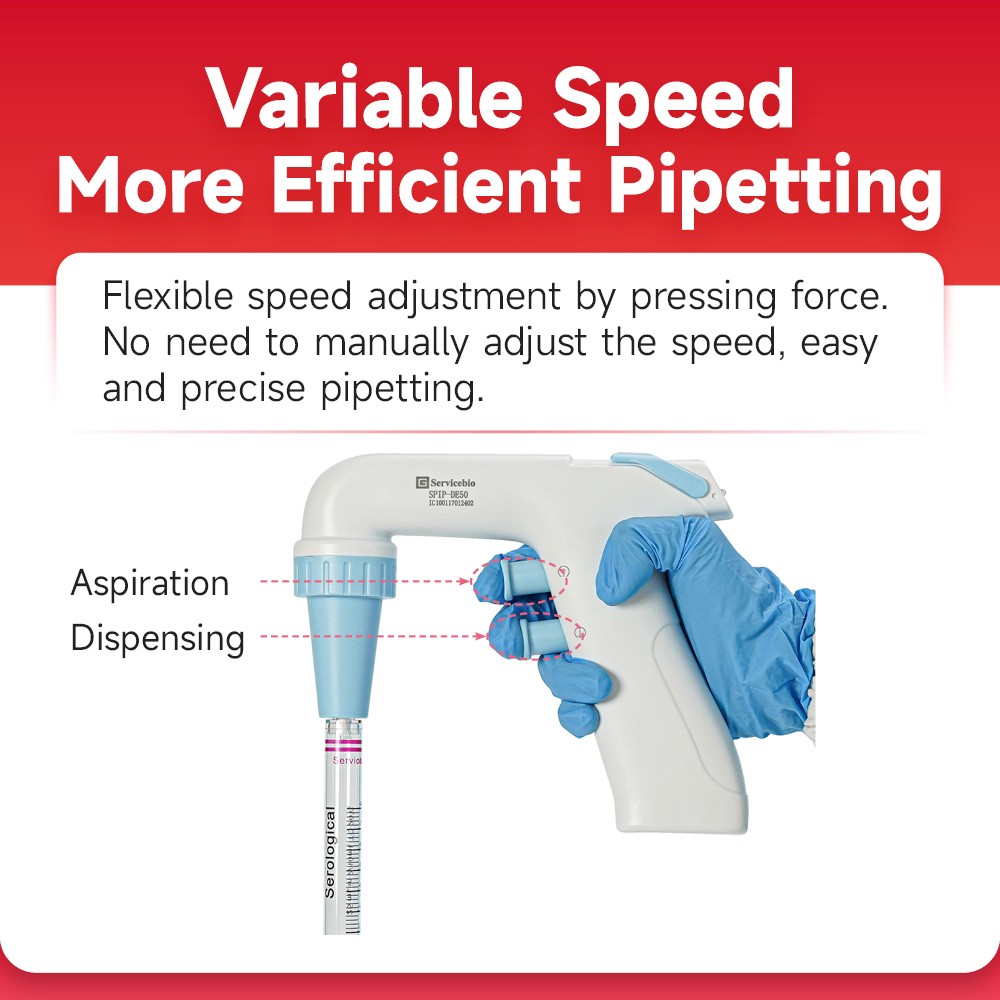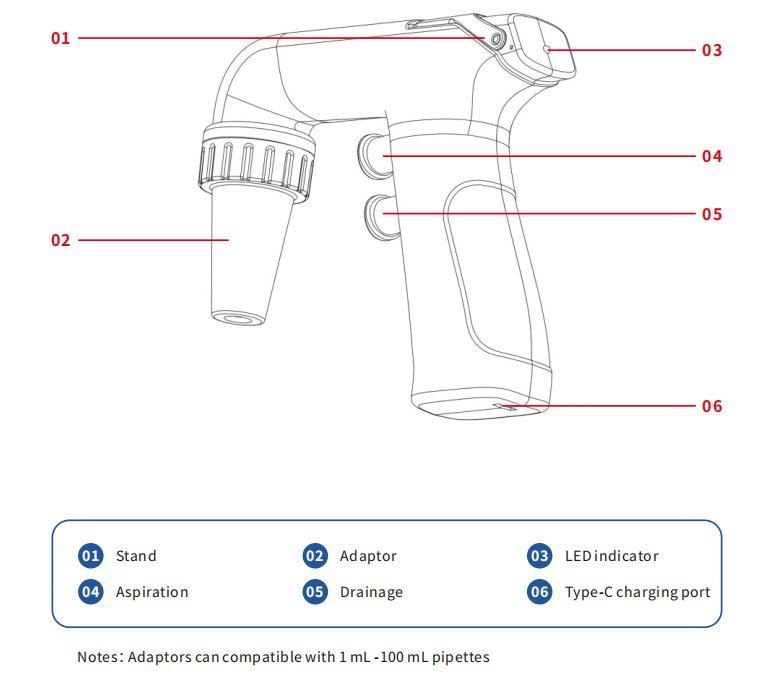


This product adopts an integrated design, with a compact and convenient shape. It can be compatible with plastic/glass serological pipettes and Pasteur pipettes ranging from 1mL to 100mL, and the liquid aspiration and drainage speed can be adjusted based on the pressure applied (including gravity drainage).
1. It is compatible with various commonly used serological pipettes.
2. One button for aspiration and one button for drainage, allowing the adjustment of aspiration/drainage speed by adjusting the pressure applied. Releasing the button stops aspiration/drainage. Additionally, the pressure-sensitive variable speed control makes operation extremely convenient.
3. LED indicators display the battery status of the pipette, providing a simple and clear indication.
4. It is compatible with a hydrophobic filter membrane with a pore size of 0.22μm to prevent backflow and protect the device.
5. The large capacity lithium battery provides long-lasting battery life.
6. Type-C port for charging, providing strong compatibility.
7. It comes with a built-in stand for convenient placement.
8. It supports both gravity and motor-driven drainage modes, allowing easy switching between the two.
| Battery Level Display | LED Indicator |
| Motor Type | Miniature vacuum pump |
| Aspiration Speed | 50mL<10s |
| Drainage Speed | Motor-driven/ Gravity |
| Battery | Battery:Input:DC5V/≤0.8A Capacity:1800mA |
| Speed Control | Pressure-sensitive infinite speed adjustment |
| Battery Life | 3 weeks of intermittent operation |
| Charging Time | Approximately 1.6h |
| Compatible Pipette |
Serological (1mL-100mL); |
| Filter | 0.22μm, Hydrophobic PTFE membrane |
| Weight | 185g |

During Pipetting Operation
| >20% | Light on |
| ≤20% | Rapid flashing |
During Charging
| Battery Level | LED Indicator Display |
| <80% | Slow flashing |
| ≥80% | Light on |
Use collapsible tabs for more detailed information that will help customers make a purchasing decision.
Ex: Shipping and return policies, size guides, and other common questions.